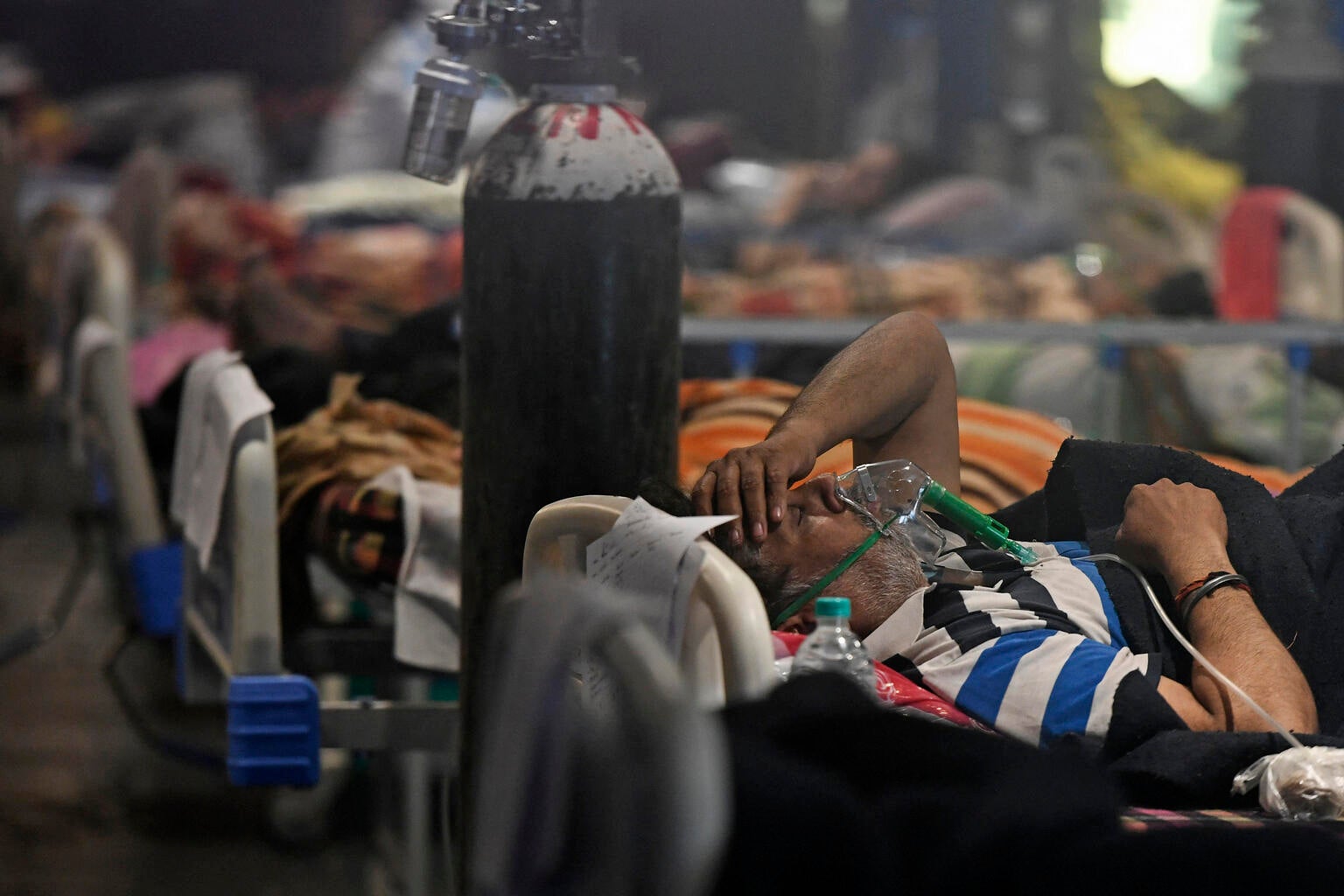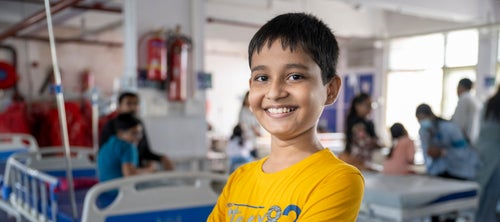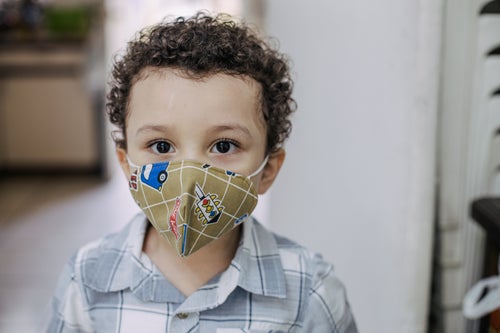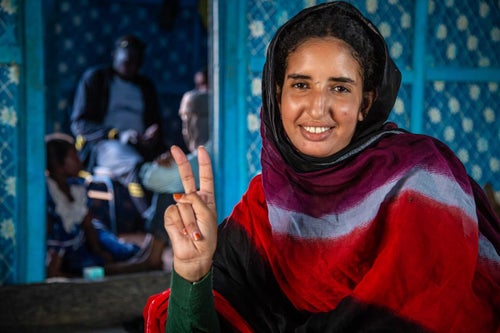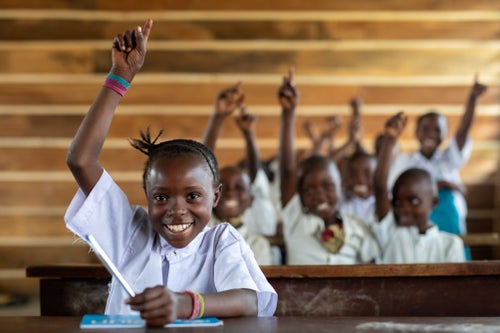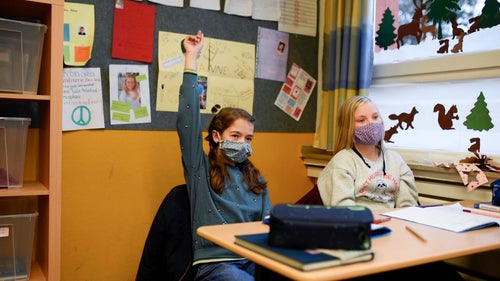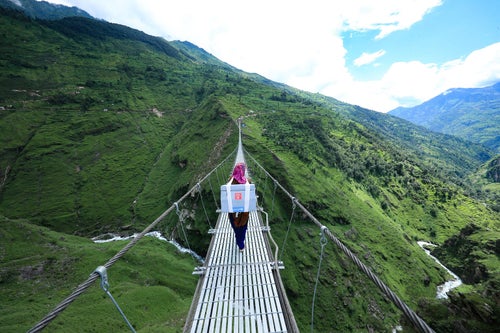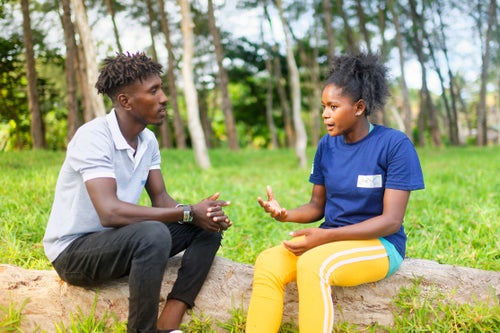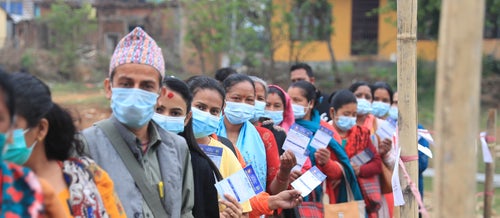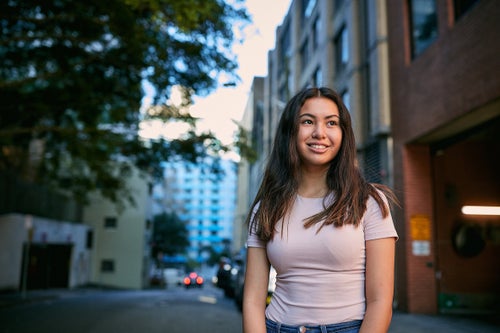India is facing the deadliest days of the pandemic yet. COVID-19 has touched the lives of millions, including our teams on the ground. These are their stories.
Sonia's story
Sonia was first struck with the virus in December 2020.
“My daughter and I were both affected. We spent days in isolation with a teenager cooking meals for us," says Sonia Sarkar, Communication Officer for UNICEF India in New Delhi.
After she recovered, she went back to work, supporting the roll-out of COVID-19 vaccinations in the country. There was a sense of hope in the air.
In the first few months of 2021, masks rested on chins in the crowded markets, school tuitions had cautiously opened, the metro was working again, and people were slowly moving back to ‘normal life’. Then the virus struck back with a vengeance in the last few weeks.
While hospital ICUs battled to save lives, UNICEF’s media room worked day and night to fight the spread of misinformation, send out critical public health messages and encourage vaccination.
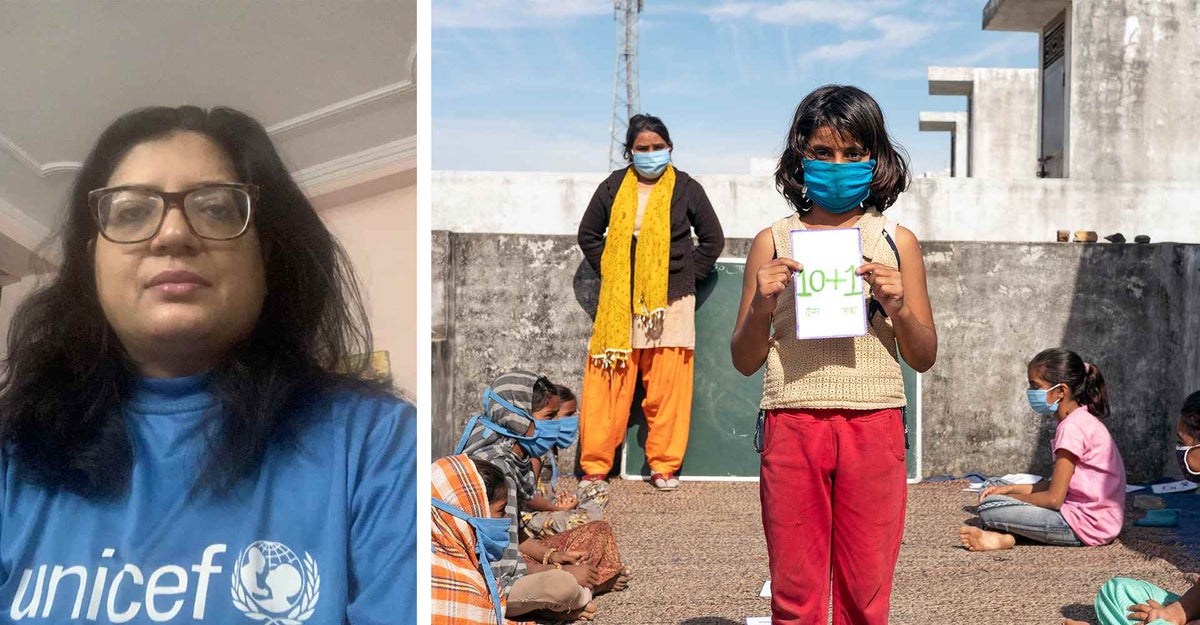
“My teenage daughter had long fights with me,” says Sonia. “Now that cases had fallen, her Instagram conversations with friends were on how to meet and study together.”
“So, she took the tuk-tuk auto to attend classes. Masks were on, though most youngsters her age would not bother.”
The second wave of the pandemic in India is almost four-times the size of the first wave.
More than 360,000 cases are being recorded daily, the highest of any country since the pandemic began.
Hospitals and health centres across India are struggling to cope with the overwhelming number of new cases, with hospital beds, essential drugs and oxygen running out. As cases climb to more than 23 million, more than four new cases are being reported every second.
“The surge of the virus was unimaginable. Almost everyone I knew had been affected or near and dear ones had been struck or were in hospital,” says Sonia, who caught the virus for a second time in early April.
“Sirens of ambulances can be heard throughout the night as people rushed to hospitals looking for oxygen, looking for masks.”
Since the onset of the pandemic, UNICEF has provided hospitals with thousands of oxygen concentrators and urgently needed emergency equipment.
In response to the latest surge in need, we’ve just delivered another 3,000 oxygen concentrators along with diagnostic tests and medical kits to help save lives. But much more is needed as this outbreak continues to spread rapidly.
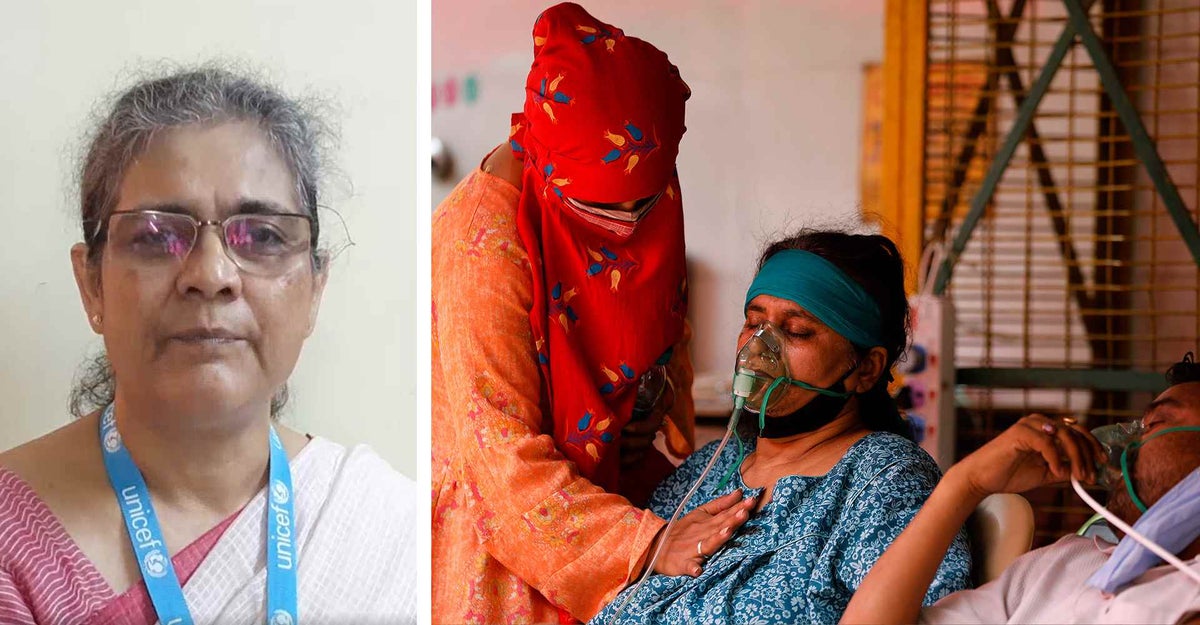
Dr. Mitra’s story
Dr Kaninika Mitra, UNICEF’s Health Specialist, describes similar scenes in West Bengal. Those infected and their families are scared, stressed out and desperate. However, we should not lose hope, says Dr Mitra.
“We are hearing such inspiring stories from the field about doctors, nurses and paramedics who are working day in and day out 24/7 to save lives of so many people,” she says.
“A few days back, I had to take my 100-year-old in-law to a vaccination centre, not in Kolkata, but in a small public health centre.”
“And the quality of care and the hospitality that we received from the health care workers – that was something that was very beautiful and we are thankful.”
“We should not lose hope. We should fight this pandemic together.”
What you've helped us deliver so far
Thanks to support from generous people like you, our teams have sent life-saving supplies including:
- 3,000 oxygen concentrators, diagnostic tests and medical supplies
- 2 million face shields and 200,000 surgical masks
- 11,000 personal protection kits for Child Helpline staff
- 500 high flow nasal cannulas and 85 COVID-19 testing machines.
90 cents of every dollar you generously donate will support UNICEF's urgent COVID-19 response in India. You can help send life-saving supplies to families in India now.
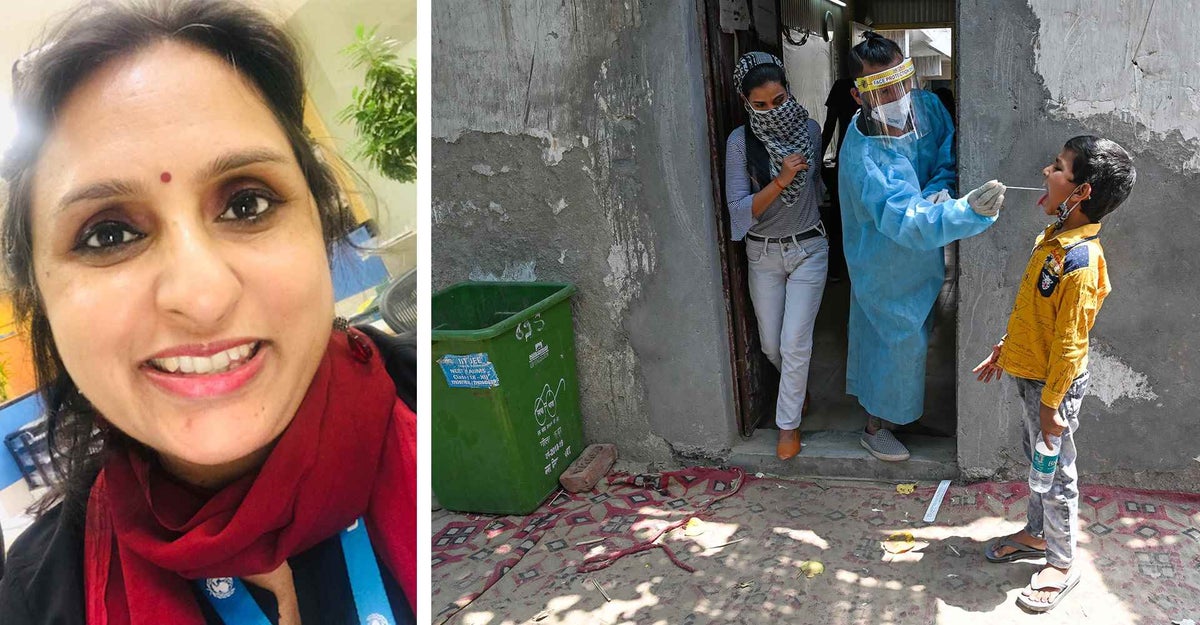
Jessinda’s story
Jessinda Mathew, one of our program team members in India, still remembers the afternoon of 26 February 2020 when her 75-year-old mother-in-law called her to say she had difficulty breathing. She immediately rushed to be with her in a small costal town 1,370 kilometres from Mumbai, where Jessinda was working.
“The week that followed was one of the most exhausting I had experienced,” says Jessinda, Senior Program Associate, WASH, UNICEF India.
“We ran between hospitals, tests, medicines, ventilators, which woke me up to the hard reality of what the disease is all about. At that time, wearing masks was still very new; people were not quite serious about it.”
Fast forward to 2021 and Jessinda is watching as her friends look for ICU beds and her colleagues are desperate for oxygen cylinders. But what keeps her going is seeing everyone come together to support each other.
“There are stories of friends driving miles to give an oxygen cylinder to a friend in need; an elderly man giving up his bed and people cooking food for patients who are at home.”
“There are lots of such compassionate and kind actions that make me believe in humanity once again and that ‘we will overcome this, and we will overcome this together’.”
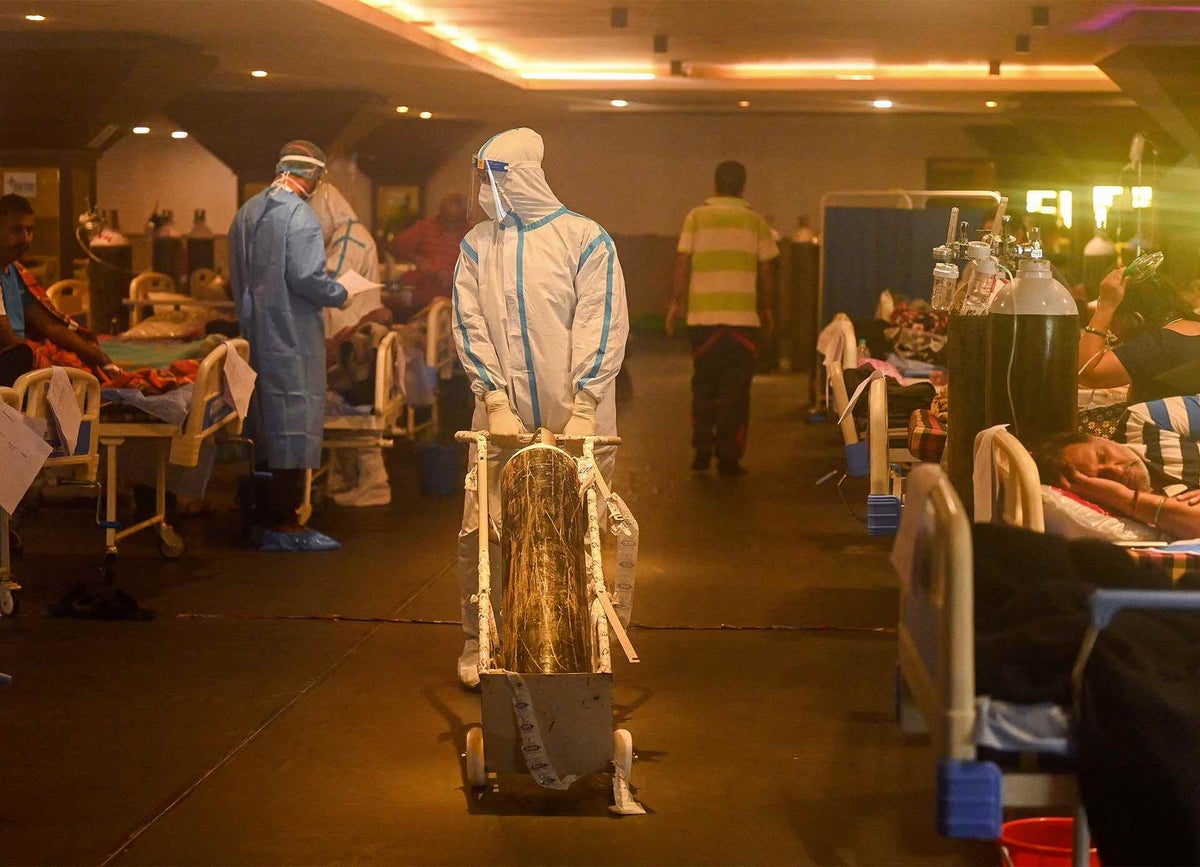
UNICEF has worked in India for 70 years, supporting the government and helping children and families. Our team in the country has 450 staff members working in 17 states.
We are urgently appealing for funds to supply 50 Oxygen Generation Plants to treat critically ill patients. Every plant can support a 500-bed hospital for patients to breathe and survive.
With your help, we can deliver urgent supplies to health centres and reach families. UNICEF is on the ground:
- Increasing access to life-saving oxygen by delivering Oxygen Generation Plants to hospitals to treat severe and critical COVID-19 cases.
- Providing rapid, accurate testing machines in some of the most affected districts.
- Supporting the ongoing distribution of COVID-19 vaccines through the UNICEF-supported COVAX initiative.
Donate and send life-saving supplies to India now.
Donate to UNICEF Australia
Protect the rights and wellbeing of every child by donating to UNICEF Australia today.
Related articles
Stay up-to-date on UNICEF's work in Australia and around the world



